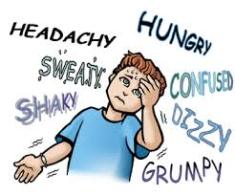This class was awesome and doing this blog was a really nice and different experience! 🙂
Category Archives: Uncategorized
Publish paper #2 Diabetes and cardiovascular disease
Publish paper #2 Diabetes and Cardiovascular disease.
The Cambridge Research Paper, “Diabetes doubles risk of heart attack and stroke,” Accessed April 05,2013.
http://www.cam.ac.uk/research/news/diabetes-doubles-risk-of-heart-attack-and-strokes
It was brought to my attention recently that two of my family members, one of them suffered from a heart attack and the other is pre-diabetic. This made me very inquisitive about the two types of diseases and I wanted to be more informed about them.
From the university of Cambridge, some research was done to show that diabetes doubles the risk of developing a wide range of blood vessel diseases, including heart attacks and different types of stroke. Diabetes is a type of disease where the body fails to regulate the amount of glucose needed for the body. It doesn’t allow the body to produce or use insulin properly. Insulin can be defined as a hormone that is needed to convert sugar, starches and food into energy needed for everyday life.
Diabetes is now proven to be responsible for 1 in every 10 deaths from cardiovascular disease, or approximately 325,000 cardiovascular deaths per year in all industrialised countries joined. These results were obtained by analyzing 700,000 people. The purpose of their study was to prevent diabetes in the face of increasing rates worldwide.
Apart from diabetes, cardiovascular disease is responsible for 17 million deaths every year which globally is the leading cause of death. Diabetes is a major risk factor for blood vessel diseases. In the increased levels of blood fats , blood pressure and obesity it increases the effect of diabetes which in turn is the leading causative agent of cardiovascular disease.
From the results obtained, diabetes is shown to double the risk of a lot of different blood vessel diseases. Therefore, diabetes does indeed play a key role in cardiovascular diseases.
Publish Paper #1 On Hypoglycaemia
The Cambridge Research Paper, “Scientists identify cause of severe hypoglycaemia,” Accessed April 04,2013.
http://www.cam.ac.uk/research/news/scientists-identify-cause-of-severe-hypoglycaemia
Hypoglycaemia is when there is a low content of glucose in the blood (low sugar blood). Some causes can be due to excessive insulin produced by the body. This usually occurs in diabetic patients or people with that have an overpopulation of insulin. Effects can range from mild to extremely serious for example mild, dysphoria or serious for example, unconsciousness, seizures and permanent brain damage or death.
In an estimation, 1 in 100,000 births a genetic defect which causes a severe form of hypoglycaemia which is not detected in the bloodstream. Scientists have come up with a surgical feeding tube in front of the stomach during sleep. This inhibits patients’ blood glucose from decreasing low overnight.
Research scientist, Dr. Robert Semple at the institute of Metabolic Science and the welcome Trust Sanger institute at the University of Cambridge conducted studies in London and Paris. They studied three children who had the rare form of hypoglycaemia. They examined the children’s genetic code. By doing this they were able to identify the rare genetic change that caused the disorder in the three children. However, they found that in their parents there, weren’t any alterations in their AKT2 gene. AKT2 gene displays a diabetic phenotype, showing that it plays a key role in signal transduction downstream of the insulin receptor. By now being able to detect that the change in AKT2 ,now advanced medical care for this has started.
The reason for this interest in AKT2 molecule is because it is close to the AKT1 molecule which is activated in cancers. Now scientist are thinking that the same drugs that directly block cancer molecule AKT1 can also block AKT2 to help treat hypoglycaemia.
What was so amazing to for me in reading this paper was how passionate the scientists were in helping to find the cure and treatment methods to bring joy and happiness to the patient who are suffering from the affected conditions.
Hope you all learnt some advancement that exists in the medical care today. J
Carbohydrates Wordle
Love biochemistry!
This class was one of my best courses in UWI. It was really different and Jason Mattews was really a great lecturer! Enjoyed every class, tutorial and even exams lol! 🙂
Lipids! Why do people eat so much fatty foods???
Hope this was interesting and informative! 🙂
A mini quiz on glycolysis and the cell!
First topic: Glycolysis
1. In the process glycolysis, in the energy investment phase. How many irreversible and reversible enzymatic reactions exist?
A. 4 reversible and 1 irreversible
B. 3 irreversible and 2 reversible
C. 2 irreversible and 3 reversible
D. 2 reversible and 2 irreversible
E. 1 reversible and 4 irreversible
Second topic: Cell
2. Select the correct multiple answer using one of the keys A,B,C,D,E as follows:
A. 1,2 and 3 are correct
B. 1 and 3 are correct
C. 2 and 4 are correct
D. only 4 is correct
E. all are correct
What are the organelles that have DNA in plants?
1. chloroplast
2. nucleus
3. mitochondria
4. ribosomes
Glycolysis
This short, mini video, is very exciting, to the point and it is very effective in showing its viewers how lactic acid builds up in the human body.
Carbohydrates
Biochemistry
My name is Alicia, and I’m a biochemistry student. I really enjoy my classes and I understand the concepts much better with my lecturer’s way of teaching. It is very efficient and I don’t feel clustered but relaxed in the classes. My favourite sport is cricket and I love the beach.
